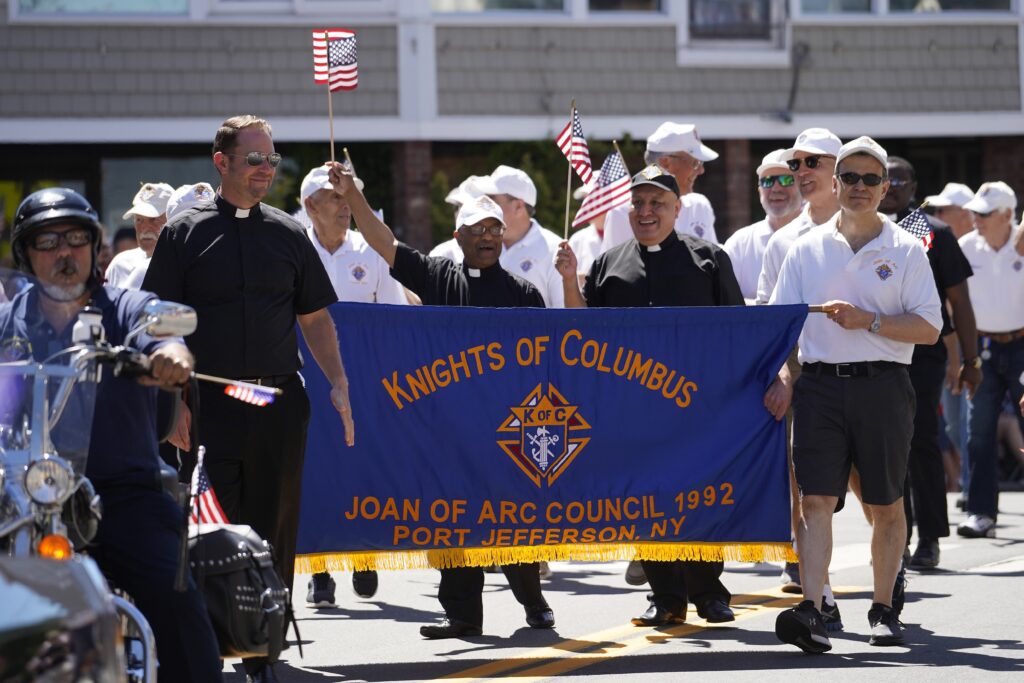
Body, Blood, Soul, and Divinity
By: Our Sunday Visitor
God gives all of Himself, and He wants all of us

The colorful and controversial World War II general George S. Patton was known among his soldiers as “Old Blood and Guts,” a moniker not used with any affection. That’s because, as those who fought under his command were quick to note, Patton’s leadership relied mostly on their blood and his guts.
Their complaint was legitimate because the costs of war are not borne equally. An ordinary soldier risks the supreme sacrifice of his life on the battlefield, but for his general, the risk is usually limited to adding to the tally of his defeats and being sidelined with a less critical role. The “benefits” aren’t shared equally either. For troops, victory means living to fight another day, while for their commander, it opens up the glorious possibility of a place in history.
Similarly, in the eternal war against sin and death, the cost of battle is — once again — not borne equally. But when it comes to salvation, everything is turned on its head. Our Commander did not need a battlefield victory to secure eternal glory. Instead, Jesus left heaven’s glory behind to fight for us. Most of us don’t risk or suffer the loss of our lives. But he willingly and sacrificially laid down his life.
That’s why the church has always spoken about the most precious blood of Christ with reverence and deep gratitude. Like the wars of history, our salvation is a matter of “blood and guts.” But with Christ, it’s his blood and our guts — his limitless self-gift and the courage we muster to follow him.
Twenty-first century Catholics may well find focusing on the blood of Jesus Christ graphic and visceral, bizarre and even primitive. But if we can set our post-modern sensibilities aside, we can begin to grasp how deeply personal salvation is.
Salvation is a bloody business. That’s because our redemption is not a transaction: the execution of a divine business deal or the fulfillment of terms contained in some mystical contract. The tortured body of the Nazarene is not a sacrifice offered to appease a bloodthirsty God. On the contrary, it is the no-holds-barred offering of God to us — a complete gift of himself to the last trickle of blood in his veins. God has no thirst for blood or violence; he thirsts for us. An angry crowd demanded his crucifixion; a loving God placed him entirely into our hands.
Jesus poured divine life into humanity. In the Eucharist, he continues to place his body and blood into our hands. He still offers us the chalice of his most precious blood outpoured and filled to the brim. And he does this to show us what self-gift is: what it costs and what it looks like. He does this to quench our thirst for transcendence, our longing not only to have more, but to be more. Because we are created in his image, our deepest desire is like his: to give ourselves away, totally, without reservation, for and in love.
The chalice is a paradigm of Christian life. It is only full if we fill it, not with the substance of someone else’s life or with only a portion of our own. Taking up our cross and following Christ are one and the same. The cup we are called to is meant to be filled with a sacrificial gift of self. We are all called to live as martyrs, even if our deaths don’t qualify as martyrdom.
We all want to be on the right side of eternity. But the question Jesus asks James and John in the Gospels of Matthew and Mark is one we too must answer. “Are you able to drink the cup that I am about to drink” (Mt 20:22; Mk 10:38)? But if the sons of thunder were too quick to respond in the affirmative, we are often too ready to refuse the chalice or change the subject.
God gives us all of himself — body, blood, soul, and divinity — and he wants all of us — body, blood, soul, and humanity. Each day we are called to do what Jesus did, to empty ourselves of ourselves and pour out our lives as a sacrificial offering to God and neighbor. We are challenged not only to drink from his cup, but to fill it the way he does; by making a total gift of self to the last drop of love.
– – –
Jaymie Stuart Wolfe is a sinner, Catholic convert, freelance writer and editor, musician, speaker, pet-aholic, wife and mom of eight grown children, loving life in New Orleans.

